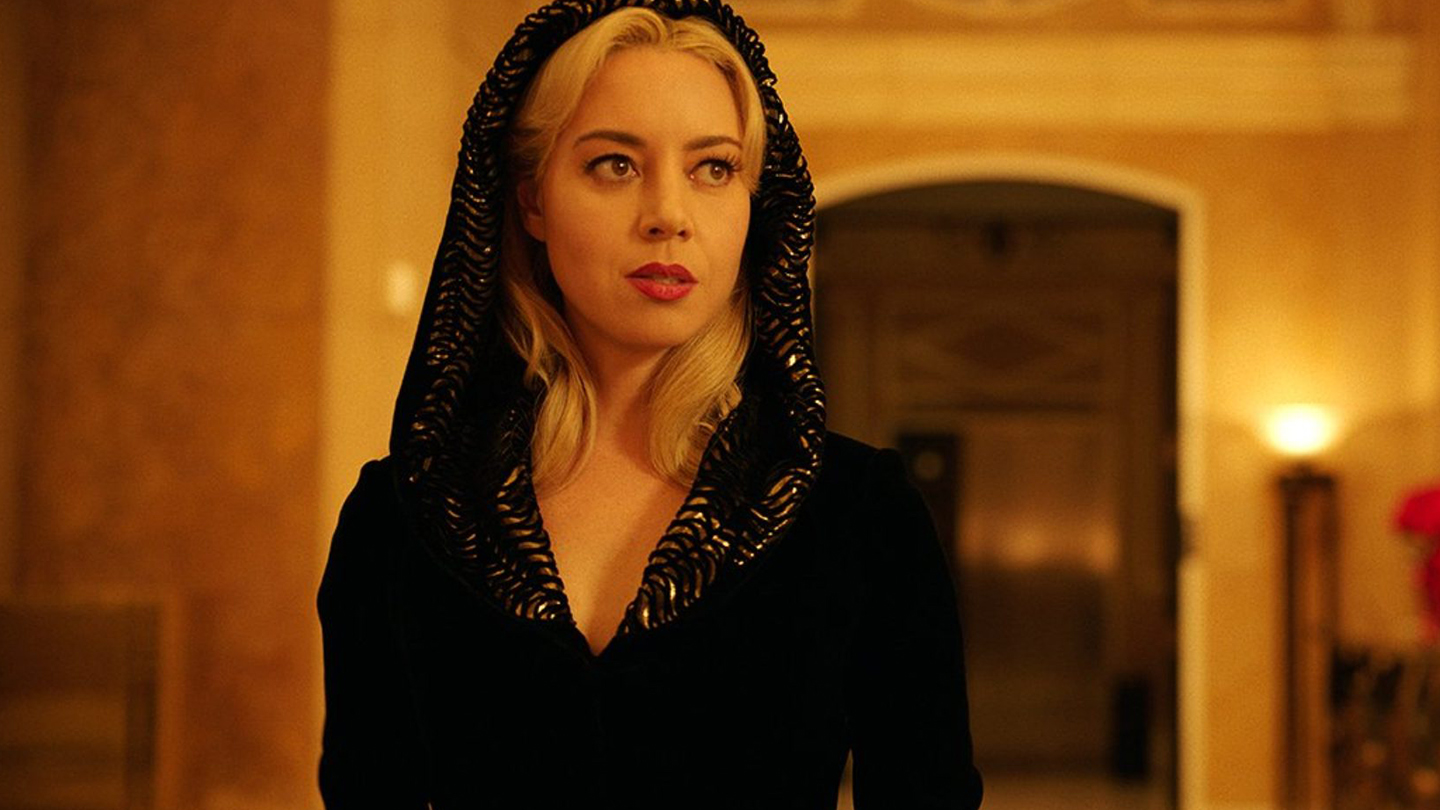Gdyby samo Megalopolis nie okazało się tak memicznie kuriozalnym filmem, to prawdopodobnie zapamiętalibyśmy z niego przede wszystkim ogromną wpadkę towarzyszącą jego kampanii promocyjnej. Być może mówi ona wszystko, co trzeba powiedzieć o najprawdopodobniej ostatnim obrazie Francisa Forda Coppoli.
Przypomnijmy: w sierpniu dystrybutor filmu, Lionsgate, opublikował zwiastun, który rozpoczynał się cytatami rzekomych recenzji dawnych filmów Coppoli, przypisanymi znanym nazwiskom anglojęzycznej krytyki filmowej. Fragmenty recenzji, m.in. Ojca chrzestnego i Czasu apokalipsy – zarzucające artystyczną „pustkę” filmom i „zadufanie” reżyserowi – miały ilustrować nieuchwytną dla krytyków zamkniętych w teraźniejszości swoich gustów awangardowość Coppoli.
„Patrzcie, wszystkich najwybitniejszych filmów krytycy również nie zrozumieli przy premierze!” – w atmosferze kiepskich pierwszych recenzji Megalopolis, która narosła w oczekiwaniu na premierę filmu, była to całkiem brawurowa strategia promocyjna. Problem w tym, że większość cytatów okazała się… całkowicie zmyślona lub przypisana nie tym filmom, co trzeba. Za tę potężną wpadkę winny okazał się pracownik marketingu Lionsgate, który zlecił wyszukanie negatywnych recenzji filmów Coppoli jednemu z chatbotów sztucznej inteligencji. Niesforna AI cytaty zmyśliła i pomieszała.
Przekonanie, że w przypadku odbioru Megalopolis tylko czas stoi po stronie wyśmiewanego reżysera, to chyba jedyna możliwa linia obrony tego wyjątkowo nieudanego filmu. Coppola podjął się w nim eksperymentu uwolnienia wszystkiego, co nieskrępowane w swoim własnym twórczym ego. Efekt jest taki, że reżyser wydaje się bronić przed nieuchronną krytyką już samymi założeniami opowieści.
Nieprzypadkowo jej główny bohater, pół architekt, pół superbohater Marvela, Cesar Catilina (Adam Driver), oprócz niesamowitego intelektu i erudycji dysponuje mocą zatrzymywania czasu. Dzięki temu osiąga apogeum mocy twórczych, które pozwalają mu na dosłowne (w zasadzie ten przymiotnik powinien być w dalszej części tej recenzji zbędny, bo w tym filmie dosłowne jest wszystko) kreowanie rzeczywistości wedle własnej woli.
Catilina to oczywiście po prostu sam Coppola. A tytułowe Megalopolis i Megalopolis jako film mają zbawić pogrążony w kryzysie świat. W filmie się udaje, tylko co z tego – skoro sam film nie udaje się w ogóle.
Trzęsawka jako klucz
Władza nad czasem to niejedyna supermoc Catiliny. Jest on również wynalazcą megalonu, przełomowego materiału budowlanego o niezwykłych właściwościach technologicznych. Świat Megalopolis to pełnowymiarowe uniwersum science-fiction, ale Coppolę nie bardzo interesuje wprowadzenie widza w ten świat czy objaśnienie jego wielu niejasnych, technicznych aspektów. Trzeba przyznać, że aż szkoda – bo worldbuilding jest tu, nieoczekiwanie, najmocniejszą stroną.
Megalopolis najlepiej można porównać do złej adaptacji książki, która po obejrzeniu samego filmu wydaje się dla osób nieznających oryginału warta uwagi. Problem w tym, że tu żadnego oryginału nie ma. Zupełnie jakby Coppola własnym ego przyćmił te nieliczne iskry ciekawych pomysłów, które były gdzieś na początku układania całego projektu.
Akcja historii dzieje się w Nowym Rzymie, który jest miastem Stanów Zjednoczonych, a tak naprawdę chylącą się ku upadkowi Republiką Rzymską po retrofuturystycznym rebrandingu. Jak każdy współczesny, konserwatywny samiec alfa Coppola cały czas myśli o starożytnym Rzymie i na żadnym kroku nie pozbawia nas wątpliwej erudycyjnej przyjemności czytania bezpośrednich odniesień do wydarzeń z przeszłości.
Sam punkt wyjścia opowieści jest swego rodzaju adaptacją wydarzeń z 63 roku p.n.e., a więc spisku Lucjusza Katyliny, odsuniętego na bok rzymskiego polityka, którzy rzucił wyzwanie jednemu z konsulów Republiki Rzymskiej, Cyceronowi. W filmie Coppoli rolę tę odgrywa Franklyn Cicero (Giancarlo Esposito), najpierw okręgowy prokurator, a potem burmistrz Nowego Rzymu. To między idealistycznym, ale aspołecznym, niezrozumiałym Catiliną, reprezentującym upadły establishment imperium Cicero oraz potężnym bankierem Hamiltonem Crassusem (Jon Voight) – a także jego rozpieszczonym synem, gospodarującym jako debiutujący polityk żywiołem bezproduktywnego społecznie populizmu (Shia LaBeouf) – toczy się męcząca fabularna trzęsawka Megalopolis.
Trzęsawka to słowo klucz – bo to jeden z filmów, który na poziomie opisu rysuje w wyobraźni horyzont wielopoziomowej, szekspirowskiej partii politycznych szachów, a w praktyce ma problemy z podstawowym zbudowaniem jakiegokolwiek rytmu i wprowadzenia choćby minimum napięcia. Duża w tym zasługa sprowadzenia głównego konfliktu do sporu o kobietę – córkę Cicero, Julię, z którą relację wbrew woli ojca nawiązuje Catilina.
Jak każdy seksistowski dziaders Nowego Hollywood Coppola uważa, że sprawy wagi najdonioślejszej – polityka, etyka, starożytny Rzym – to dyscyplina wzajemnego mierzenia męskiego ego w centymetrach i milionach. Ale uważa również, że największym trofeum męskiego ego jest wygranie wojny o kobietę.
To idealny dziadersko-szownistyczny miks, w którym „istnieją” (w sensie podmiotowym) tylko mężczyźni, a i tak jakimś cudem można być seksistą – bo i tak wszystko się rozgrywa „o te baby”. Czym jest w końcu prawdziwy alpha male bez swojej muzy?
W tej roli Coppola obsadza nieprawdopodobnie mdłą Nathalie Emmanuel, znaną z roli Missandei w Grze o Tron. W serialu HBO Emmanuel była podobnie bezbarwną paprotką do sumienia ludobójczyni, którą stała się pod sam koniec Danerys Targaryan. W Megalopolis jej funkcja to w zasadzie plot device dla odblokowania libido Cesara Catiliny – zarówno w sensie superbohaterskich mocy (dopiero gdy architekt poznaje córkę Cicero, wraca mu zablokowana umiejętność zatrzymywania czasu), jak i bardziej dosłownym. Julia szybko zachodzi z nim w ciążę i to dla ich wspólnej córki udaje się w końcu zażegnać kryzys Nowego Rzymu oraz zbudować lepsze jutro.
Z postacią Julii kontrastuje drugoplanowa antagonistka Wow Platinum, grana przez najwybitniejszą hollywoodzką aktorkę millenialskiego postironizmu, czyli Aubrey Plazę, znaną choćby z sitcomu Parks and Recreation. Plaza jest chyba najlepszą częścią Megalopolis, bo jako jedyna z obsady wydaje się świadoma, w jakim dziaderskim cyrku uczestniczy. Wypowiadając ze swoją charakterystyczną, beznamiętną sarkastyczną manierą kwestie w rodzaju „jesteś cholernie analny, a ja jestem cholernie oralna” nadaje swoim scenom energię, której mimo wizualnego przeładowania strasznie im brakuje.
Wizualna neuroatypowość z Lucasa
A film jest rzeczywiście wizualnie przeładowany – szkoda tylko, że na poziomie wrażeń i emocji w ogóle się tego nie odczuwa. Jeżeli w okolicach premiery Megalopolis widzieliście w mediach społecznościowych memy porównujące film np. do prequeli Gwiezdnych wojen, to już przeczytaliście jego najlepszą możliwą recenzję. Czasami to aż nieprawdopodobne, jak precyzyjnie daje się opisać dziwaczną estetytykę i ton Megalopolis właśnie przez najbardziej neuroatypową space operę w historii gatunku, którą w trzech aktach przedstawił światu ponad 20 lat temu George Lucas (a zwłaszcza w Ataku klonów i Zemście sithów).
Podobieństwa są oczywiście na poziomie wizualnym – na poziomie palety kolorów, designu świata (Nowy Rzym naprawdę wygląda jak archaiczna wersja Corsuscant), na poziomie aż fetyszystycznie cyfrowej faktury obrazu, pracy kamery. Wizualnie skojarzeń jest więcej: współczesna, chaotyczna Lana Wachowski, cutscenki z gier przygodowych z perspektywy pierwszej osoby z lat 90., Zack Snyder ze swoimi hiperkomiksowymi trawestacjami mitów czy wystrój wnętrz rodem z Trump Tower.
Inne podobieństwa do Lucasa widać w warstwie storytellingu – podobnie jak Lucas, Coppola buduje całkiem ciekawy świat tylko po to, żeby swoją historię opowiedzieć poprzez przerysowaną melodramę małego grona bohaterów, upchaną w grafomańskich scenach dialogowych. W wielkiej epopei Megalopolis o upadku cywilizacji oglądamy na przykład upadek satelity na wielką metropolię, a i tak mamy wrażenie, że tak naprawdę niewiele się dzieje poza gadaniem. Czasem aż trudno zrozumieć, jak ten wielki miszmasz wizualnych i dramaturgicznych atrakcji – kiczowaty, ale ciekawy z krytycznego punktu widzenia – wypada w ruchu tak nużąco i jednostajnie.
Tryumf ego i artystyczna katastrofa
W jednym z wywiadów promujących film Coppola zgadza się z przeprowadzającym go prezenterem, że krytycy nie rozumieją filmu, bo jest on „w innej tonacji” niż mainstreamowe kino. Trzymając się muzycznej metafory, można powiedzieć, że problem jest inny: Megalopolis zagrane jest na kilku tych samych wysokich dźwiękach, które bez niczego pomiędzy stają się nieprawdopodobnie monotonne. Słuchając kolejnej sceny, w której bohaterowie przerzucają się gęstymi cytatami z Marka Aureliusza, zamiast intelektualnego oszołomienia miałem raczej wątpliwości, czy aktorzy w ogóle mają jakiekolwiek pojęcie, o czym mówią. Doniosłe sentencje o przyszłości cywilizacji przekazywane są w scenach o plastikowej toporności seriali Netflixa.
Film jest także irytująco niepolityczny. Kończy się pstrokatym happy endem, który tak naprawdę nie ma racji bytu – poza tym, że jest wykrzyczany w patetycznej przemowie Catiliny, prosto z najbardziej konwencjonalnego podręcznika dramaturgii Hollywood. W zasadzie cały ten architektoniczno-fantastyczny intelektualny fundament historii, sugerujący jakąś strukturalną, abstrakcyjną głębię kryzysu polityki, do której dostęp ma geniusz-zbawca Catilina, okazuje się zupełnie zbędny. Nastaje utopijne Megalopolis, bo elity rozwiązują między sobą dawne spory i zażegnują urazy. Mało inspirująca to wizja naprawy świata.
Jednak być może największa klęska Megalopolis to wniosek, że za artystyczną katastrofę filmu odpowiada właśnie absolutny tryumf ego Coppoli, który stworzył ten film wbrew wszelkim materialnym ograniczeniom (i wydał na jego produkcję 100 mln dolarów z własnych pieniędzy). Kino jest z punktu widzenia ego twórcy najtrudniejszą ze sztuk, bo ze względu na koszty produkcji i zespołowy charakter robienia filmów, najtrudniej jest stworzyć coś, co odpowiada jednostkowej wizji jednego autora.
Sama historia Megalopolis jest z kolei o tym, że jak się to uda, to mamy arcydzieło, dopełnienie geniuszu. Ale efekt pokazuje raczej, że jest odwrotnie. Wydanie potężnej fortuny na zrobienie filmu, który ogląda się dobrze wyłącznie w głowie twórcy, być może nie jest współcześnie najgorszym sposobem na roztrwonienie majątku – ale biorąc pod uwagę walory artystyczne filmu, to wydziedziczenie dzieci pozostanie chyba jedynym osiągnięciem Coppoli na ostatnim etapie kariery. Zawsze coś, ale reżyser Czasu apokalipsy zasługiwał jednak na lepszy finisz.

 Wspieraj
Wspieraj 

 Wspieraj
Wspieraj  Wydawnictwo
Wydawnictwo 
 Przekaż
Przekaż 















